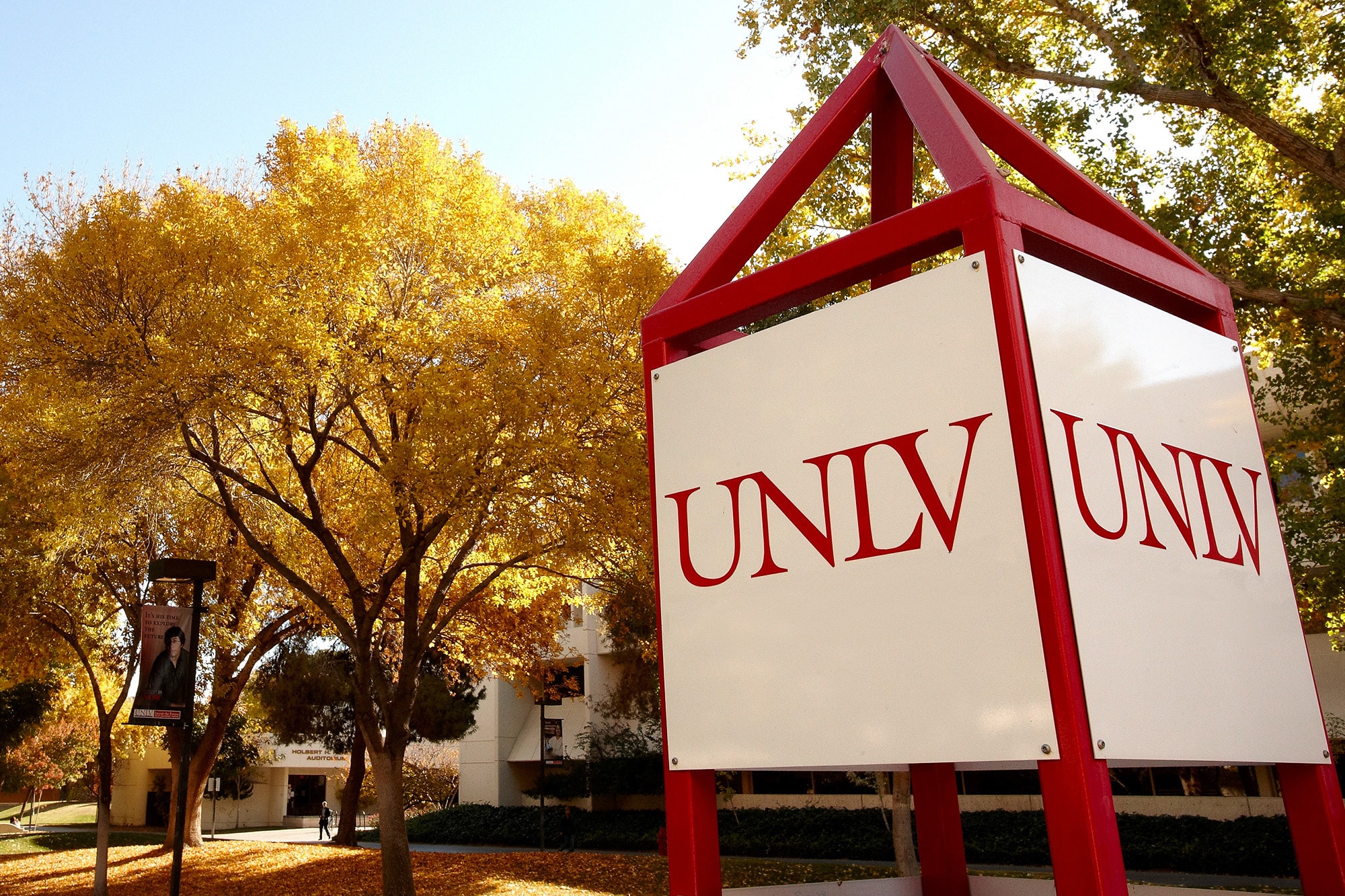The UCCSN Board of Regents approved the creation of UNLV's Institute for Security Studies at its meeting in Reno on Thursday (Aug. 14). The institute will bring together a range of research and education programs related to homeland security, including an educational outreach program for counterterrorism experts and a new master's degree program in crisis and emergency management.
"We expect that the institute will attract new research dollars to support the tremendous work that has already begun on campus," said UNLV President Carol C. Harter. "Our goal is to use our campus resources to create an organization that takes a multidisciplinary approach to security issues. The institute will expand the educational opportunities for those working in the security industries and will lead cutting-edge research in this important field."
Lee Van Arsdale, executive director of the institute, said, "The Institute for Security Studies will be a robust, multifaceted organization that will make UNLV synonymous with leading research in security studies. UNLV already has a number of talented people working in this field; the institute will help them garner critical funding to expand and develop their research and educational programs."
The institute will house a number of units, including offices of academic programs, educational outreach, human considerations, and domestic preparedness.
The institute's office of academic programs will help develop new degree programs, such as the recently approved executive master's degree in crisis and emergency management.
The degree is intended for mid- to upper-level managers in public agencies that deal with incidents of terrorism and natural disasters. Though some of the teaching will be conducted on campus, the program will take advantage of the training resources at the Nevada Test Site, and distance education technology will be used to better reach students.
"We can offer very unique educational and training experiences to crisis and emergency managers by drawing on the resources of UNLV and of our community," said Paul Ferguson, vice president for research and graduate studies.
The institute will work to establish scholarships for students in the program. The scholarships will help ensure that students come from a broad base of organizations, including emergency medical, military, and hazardous materials agencies as well as fire and law enforcement departments.
Through the institute, UNLV's division of educational outreach will expand a professional development program it has already developed for emergency workers. The First Responder Train the Trainer program helps experts in domestic preparedness become highly effective classroom presenters. The goal now is to bring the 60-hour program to the thousands of "subject matter experts" who train the 9 million police, fire, rescue, and health-care workers around the country.
The institute's office for human considerations will support interdisciplinary research related to the perpetrators and victims of terrorism as well as to those who respond to crises. "By bringing in liberal arts disciplines, such as psychology and sociology, we can learn how best to work with individuals who are victims of a terror-related or natural disaster. Also, we can better understand what motivates people to engage in terrorism," Ferguson said. "Through this multidisciplinary perspective we can take a very holistic approach to security studies."
The office of domestic preparedness will oversee UNLV's role with the National Domestic Preparedness Consortium. The university recently joined the consortium, which is a partnership of several public universities and the U.S. Department of Homeland Security.
The office of cybersecurity will support research that will help ensure government and business computer systems are safe from terrorism attacks.
Finally, the institute expects to open an applied technology lab, Van Arsdale said. "The lab will provide a mechanism for the rapid prototyping, field testing, and deployment of technology to those with an immediate need for it," he said. "The lab's goal will be to turn around much-needed gadgets - like sensors and communications devices - in a matter of weeks and months, not years."



